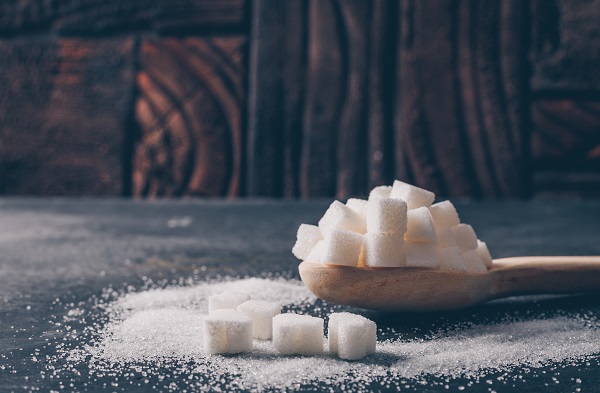Diwali is just around the corner. Time to clean up your homes, light them up, buy new clothes and be prepared to devour the sweet treats of Diwali. Sweet treats, did we say? But what about those suffering from diabetes? For diabetic patients, enjoying these delights can be impossible as traditional sweets are often packed with sugar.
Enter stevia, a natural sweetener that could offer a way to celebrate without the health risks tied to sugar. Extracted from the leaves of the Stevia rebaudiana plant, stevia is hundreds of times sweeter than sugar, yet contains virtually no calories or carbs, making it especially appealing during times of festive feasting. This natural alternative is rapidly gaining popularity in India as people look for ways to keep their celebrations both sweet and healthy.
In this blog, we’ll explore what stevia is, its health benefits, and whether it’s suitable for diabetic patients. We’ll also discuss if stevia might be beneficial for others, along with any potential side effects to consider during your Diwali festivities and beyond.
What is Stevia?
Stevia is a natural, plant-based sweetener derived from the leaves of the Stevia rebaudiana plant, native to South America. This plant has been used for centuries by indigenous communities as a sweetener and medicinal herb. Stevia’s active compounds, mainly steviol glycosides, are responsible for its intense sweetness—estimated to be 200 to 300 times sweeter than regular sugar.
Today, stevia is available in various forms, including liquid drops, powders, and granules, making it a convenient addition to beverages, baked goods, and desserts. Unlike artificial sweeteners, which are lab-synthesised, stevia is minimally processed, enhancing its appeal for those looking for a natural alternative. Additionally, it contains negligible calories and carbohydrates, making it a popular choice for those looking to reduce sugar intake while satisfying their sweet cravings.
The health benefits of Stevia
Stevia’s popularity isn’t just due to its calorie-free sweetness—it also offers several potential health benefits. Here are some of the primary reasons why stevia has gained attention:
Weight Management:
Since stevia contains virtually no calories, it’s an excellent choice for those looking to reduce calorie intake without sacrificing sweetness. This can be particularly helpful for those on weight management programmes who struggle to reduce sugar cravings.
Blood Pressure Regulation:
Research suggests that certain compounds in stevia may help lower blood pressure in people with hypertension. These effects are believed to result from stevia’s ability to relax blood vessels and promote diuresis, which reduces overall blood volume.
Oral Health:
Unlike sugar, stevia does not contribute to tooth decay or cavities. In fact, some studies indicate that it may possess anti-bacterial properties, potentially supporting oral health by reducing the bacteria responsible for cavities and gum disease.
Antioxidant Properties:
The stevia plant is also rich in antioxidant compounds, which help neutralise free radicals in the body. This may aid in protecting cells from oxidative stress, which is associated with ageing and various chronic diseases.
Can it benefit diabetic patients?
Stevia is particularly beneficial for diabetic patients who need to carefully monitor their blood sugar levels. Unlike sugar, stevia does not cause a spike in blood glucose, as it bypasses the body’s usual insulin response mechanisms. This makes it an excellent alternative for those looking to enjoy sweet foods without the risk of high blood sugar levels.
Additionally, studies indicate that stevia may improve insulin sensitivity, which could further support blood sugar control over time. This means that, beyond simply substituting for sugar, stevia might offer genuine metabolic benefits that could be helpful for managing diabetes.
During festivities, stevia-sweetened treats can allow diabetics to participate in festive indulgences without compromising their health. However, it’s unlikely to find sweets using stevia in the market, homemade sweets made using stevia may be the best alternative for diabetic people.
Should other people use it too?
Stevia isn’t just beneficial for diabetics—it’s a useful alternative for anyone looking to reduce their sugar intake, whether for health or dietary reasons. Stevia provides a way to enjoy sweet foods without adding extra calories or causing blood sugar fluctuations. This can be especially helpful for people at risk of developing metabolic issues, such as prediabetes or obesity.
That said, moderation is always key. While stevia is generally considered safe for most people, it’s wise to avoid over-reliance on any sweetener. The goal should be to enjoy a variety of natural foods, with stevia as a tool to reduce, not replace, an overall balanced approach to sweetness in the diet.
The possible side effects of Stevia
Though stevia is generally safe, some people may experience side effects, particularly when consuming it in large quantities or in highly processed forms. Here are a few potential concerns to consider:
Digestive issues:
Some people may experience mild digestive symptoms like bloating, gas, or nausea after consuming stevia, especially if it’s combined with sugar alcohol, which is common in certain low-calorie products.
Allergic reactions:
Although rare, some people may have an allergy to stevia, particularly if they’re sensitive to plants from the Asteraceae family (which includes ragweed, chrysanthemums, and daisies).
Potential hormonal effects:
There is limited evidence to suggest that stevia might have mild effects on hormone levels. While not conclusively proven, it’s something that individuals with endocrine concerns, such as thyroid issues, may want to keep in mind.
Interference with blood pressure or blood sugar medication:
Since stevia has a mild blood pressure-lowering effect, people on medication for hypertension or diabetes should consult with their healthcare provider before using it regularly.
Closing thoughts
Stevia provides a natural, calorie-free alternative to sugar, making it especially beneficial for diabetics or anyone looking to enjoy a little sweetness without the adverse health effects of sugar. While it can be a valuable addition to a healthy diet, moderation is key.




